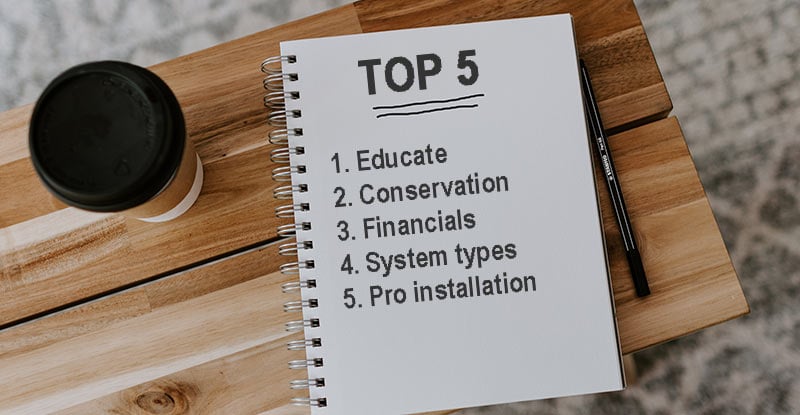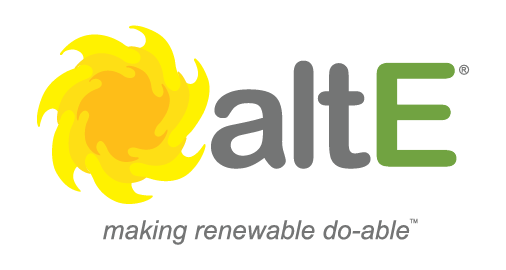- Education – The first step should always be education. There are plenty of resources available to help homeowners prepare for renewable energy. However, it is very tough to prepare for something if you don’t know that facts about what you’re preparing for. There are classes, books, magazines, and online videos to help educate. Unfortunately not all resources are created equally so be sure to learn as much as possible from a variety of sources, including here in the altE Resource Library.
- Conserve Energy – The first step any homeowner should take when preparing to pursue renewable energy is to first conserve. It is much less expensive to upgrade a house with energy efficiency upgrades than to outfit an inefficient house with renewable energy. Studies have shown that for every $1 spent on energy efficiency, $3 – $5 is saved on the subsequent purchase of a renewable energy system. Homeowners should look at upgrading things like LED and CFL lighting, upgrading old appliances, adding insulation, and eliminating phantom loads.
- Learn about available incentives – Due to the wide variety of incentives and rebates, the payback of a residential renewable energy system can range anywhere from less than one year to well over 20 years. We have gathered information for up-to-date State and Federal solar incentives and rebates, for you to learn about some of the programs that can help save you money. As well, the Department of Energy, Interstate Renewable Energy Council, and North Carolina State University have collaborated to create a website that lists all available incentives and rebates for each state. This Database of State Incentives for Renewables & Efficiency (DSIRE) is the best place to find out about any available incentives in your location. Visit dsireusa.org
- Know what system you need – Are you looking for a straight grid-tie solar electric system, a completely off-grid system, or a hybrid system where you are still connected to the utility grid, but install battery backup to use in emergency power outages? As you learn more about renewable energy, you will start to find that one technology might be a better fit for your location than others. If you don’t know what type of system you need, you won’t know what type of installer to contact. Because you’re dealing with variable resources such as sunlight, wind and other general weather conditions, it is important to know what makes a good site location. You can get a good idea through education, but ultimately, if you decide to move forward with a renewable energy system you will likely hire an installer to complete a “site analysis” for your location. Read Renewable Energy Options: Which Alternative Source of Electricity is Right for You?
- Contact credible installers – Although some people have successfully installed their own systems, residential scale renewable energy systems are typically installed by professional installers. As you become more knowledgeable about renewable energy systems, you can ask potential installers pertinent questions to determine how qualified they are. We generally recommend that customers ask about how many installations the installer has done, what brands of equipment do they use, what types of insurance they carry, and how much training their employees have. The closest thing to a nationally recognized certification in the US is the North American Board of Certified Practitioners (NABCEP). They certify solar electric installers, solar thermal installers, wind turbine installers, and also have an entry level exam. It is important to note, however, that many states will have their own list of eligible installers in order to receive any rebates. As always, do your research! Visit NABCEP.org
Friendly. Knowledgeable. Helpful.
“Hope to do more business with you in the future. altE rocks! Best customer service anywhere!” – Joe Stratham, NH
Search
Questions?
5 Things to Consider When Preparing for a Renewable Energy System

Before beginning your renewable energy journey, read this guide on the five most important tips to consider.


